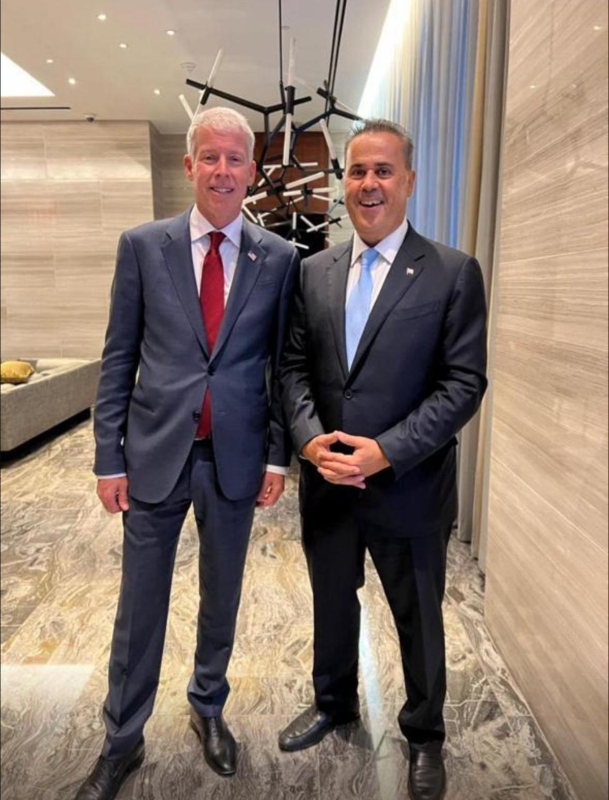At the Atlantic Council in New York, Greek Minister of Environment and Energy, Stavros Papastavrou, held a bilateral meeting with U.S. Secretary of Energy, Chris Wright, aimed at reinforcing strategic energy cooperation between Greece and the United States.
The discussion focused on the operation of the Vertical Corridor, the decoupling from Russian gas, and the gradual increase of U.S. LNG supplies to Greece and the wider region. Minister Papastavrou emphasized that 81% of Greece’s LNG imports in the first half of 2025 came from the United States, nearly double the amount from the same period in 2024, positioning Greece as a reliable hub for U.S. energy in Europe.
He highlighted that the infrastructure at Revythoussa and Alexandroupolis (FSRU), combined with the Greece–Bulgaria Interconnector and the Vertical Corridor, significantly enhances regional energy security. “These infrastructures enable U.S. LNG to flow not only to Southeastern Europe but also to Moldova and Ukraine, offering stability and prospects in an unstable international environment,” he noted.
During the Atlantic Council event, Papastavrou participated in a high-level panel with leading European and international energy ministers, including Ditte Juul Jørgensen (Director-General for Energy, EU), Margus Tsahkna (Estonia), Oleksii Sobolev (Ukraine), Zhecho Stankov (Bulgaria), and Bogdan Gruia Ivan (Romania), further strengthening transatlantic energy cooperation.
Additionally, both ministers agreed to include strategic topics such as energy collaboration, LNG infrastructure development, and the 3+1 initiative with the addition of Artificial Intelligence (AI) issues on the agenda of the Transatlantic Energy Cooperation (P-TEC), scheduled in Athens on November 6–7, with the U.S. Secretary of Energy in attendance.
The discussion also covered the development of Greece’s hydrocarbons sector, focusing on the upcoming award of the international tender to the Chevron – Helleniq Energy consortium. Papastavrou also held bilateral meetings with his counterparts from Romania and Bulgaria, and is scheduled to meet today with Michael Kratsios, U.S. Presidential Science and Technology Advisor.
Through this strategic agenda, Greece is establishing itself as a pillar of energy stability and cooperation in Southeastern Europe, reducing reliance on Russian gas and strengthening the transatlantic alliance in the critical energy sector.
Source: pagenews.gr
